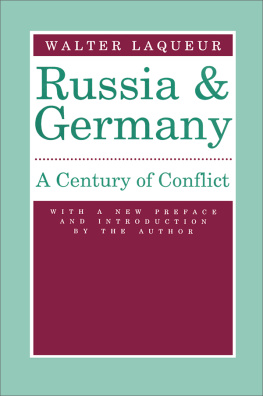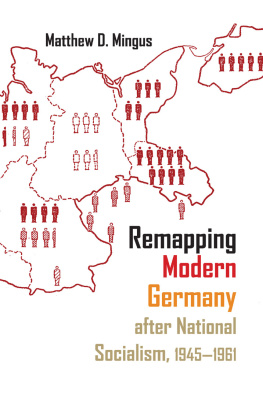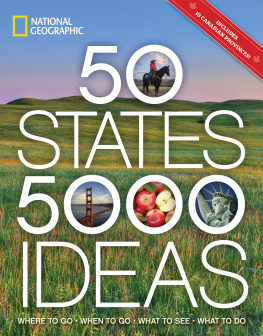THE EXPLORERS ROADMAP TO NATIONAL-SOCIALISM
To Henry, for an amazing friendship.
The Explorers Roadmap to National-Socialism
Sven Hedin, Geography and the Path to Genocide
SARAH K. DANIELSSON
The City University of New York, USA
First published 2012 by Ashgate Publishing
Published 2016 by Routledge
2 Park Square, Milton Park, Abingdon, Oxon OX14 4RN
711 Third Avenue, New York, NY 10017, USA
Routledge is an imprint of the Taylor & Francis Group, an informa business
Copyright 2012 Sarah K. Danielsson.
Sarah K. Danielsson has asserted her right under the Copyright, Designs and Patents Act, 1988, to be identified as the author of this work.
All rights reserved. No part of this book may be reprinted or reproduced or utilised in any form or by any electronic, mechanical, or other means, now known or hereafter invented, including photocopying and recording, or in any information storage or retrieval system, without permission in writing from the publishers.
Notice:
Product or corporate names may be trademarks or registered trademarks, and are used only for identification and explanation without intent to infringe.
British Library Cataloguing in Publication Data
Danielsson, Sarah Kristina.
The explorers roadmap to National-Socialism : Sven Hedin,
geography and the path to genocide.
1. Hedin, Sven Anders, 1865-1952. 2. Hedin, Sven Anders, 1865-1952--Political and social
views. 3. Hedin, Sven Anders, 1865-1952--Political activity--Germany. 4. National socialism
-History--20th century. I. Title
320.5'33'092-dc23
Library of Congress Cataloging-in-Publication Data
Danielsson, Sarah Kristina.
The explorers roadmap to national-socialism : Sven Hedin, geography and
the path to genocide / Sarah K. Danielsson.
p. cm.
Based on the authors thesis (doctoral)--University of Minnesota, 2005.
Includes bibliographical references and index.
ISBN 978-1-4094-3212-8 (hardcover) -- ISBN 978-1-4094-3213-5 (ebook)
1. Hedin, Sven Anders, 1865-1952--Political activity. 2. Explorers--Sweden--Biography.
3. National socialism and intellectuals. 4. National socialism and science. 5. Geopolitics-
Germany--History. I. Title.
G306.H4D36 2012
320.53'3092--dc23
[B]
2011045040
ISBN 978-1-409-43212-8 (hbk)
Contents
List of Abbreviations
RA Riksarkivet
SAH Sven Anders Hedins Arkiv
Acknowledgments
I am especially grateful to historians and colleagues who took the time to discuss and read numerous drafts of this text. Among those, I particularly want to mention my PhD advisor Eric D. Weitz, Professor of German History and Genocide at the University of Minnesota; and Henry R. Huttenbach, Professor Emeritus of the City College of New York. There have also been numerous librarians and archivists that greatly facilitated my research. I want to especially mention the archivists at Riksarkivet in Stockholm and the National Archives at College Park, where I conducted most of my research.
Introduction
At the Heart of the Matter:
The Politics of Science
In the Zehlendorf district of Berlin one comes across the winding Sven-Hedin-Strasse, a lingering remnant of the past and present reverence for the Swedish Explorer and Geographer, Sven Hedin (18651952), in Germany. Some distance down that street, one also comes across Sven-Hedin-Platz, a more recent token of admiration for the explorer. Naming the street in 1927 after Sven Hedin (18651952), the eminent explorer and geographer of the Far East and Central Asia, was done in acknowledgement of a long and productive life as a scientist. But the Sven-Hedin-Platz was added in 1939 by the National-Socialist regime in commemoration of his life-long political support of the German nation. Here the two sides of Hedin, his science and politics, are intertwined, very much like in his work. What the imagery of Zehlendorf illustrates is that there is no way to divorce Hedins politics from his science. His exploration accounts had captivated a generation of youth, the educated public, politicians and academic experts across Europe and North America. His scientific publications had garnered him international acclaim among his intellectual peers resulting, among other things, in numerous honorary doctorates. But he had also advocated for the German empire, avidly supported the German war effort in the Great War, and had been a famous friend of Hitler, an admirer of and admired by, the National-Socialist regime.
What sets this study apart is not only that it is the first to examine the politics of the so-called last great explorer of the Far East, but also that it uses the life and work of Hedin to understand the origins and causes of National-Socialism. Where many other studies have sought to explain the historical factors that caused the Nazi regime and its genocidal policies through broader developments, this study focuses on the geographic community and finds the embodiment of much of this development in the work of Sven Hedin. There are also important nuances being discussed in this text that I hope will shed further light on the articulation of genocide, the relationship between science and politics, and the transnational character of the intellectual support of National-Socialism.
German and German-trained geographers were especially central in this intellectual discussion.
Furthermore, the geographic community was important, if not integral, to the articulation of ideas of radical demographic restructuring the most extreme and invasive forms of interventionist social policies that saw it as perfectly acceptable for governments to manipulate demographies for their political purposes, often with the aim of creating a utopian social body. Demographic restructuring had become widely accepted at the turn of the nineteenth century, but it was the more radical of those policies that resulted in full blown genocide. Geographers had invented concepts such as geopolitik and Lebensraum that clearly justified genocidal actions. The consequences can be viewed in the significant scholarly contributions in recent years linking colonialism, imperialism, and genocide.
Part of this tension came from historical factors, primarily a sense of decline since late medieval years, historical religious conflict, incomplete unification, ethnic Germans living outside its borders, and the devastating end of World War I. This tension fits within Germanys fear of the east a theme that is going to run through this text. The nature of German imperialism and its close connection to the geographic profession created a long-term political link between geographic and imperialist articulations and the rise of Nazi Germany. Whereas this is true in general, Hedins political work provides in many ways the embodiment of this development.
As an important layer to Hedins argument, his fear of the east was tinged by the so-called historical struggles between Sweden and Russia and added an urgency to his arguments that purposely linked the Germanic world as having a common past and a common future. What emerges is the important transnational connection, especially in regards to Germanic influences from abroad. Sven Hedin, for one, did not fit neatly into a national scheme, according to a more traditional understanding of the nation-state. To understand Hedins radical politics one must look especially at an intellectual elite whose nationalism was racist in nature, vlkisch, and pan-German.







